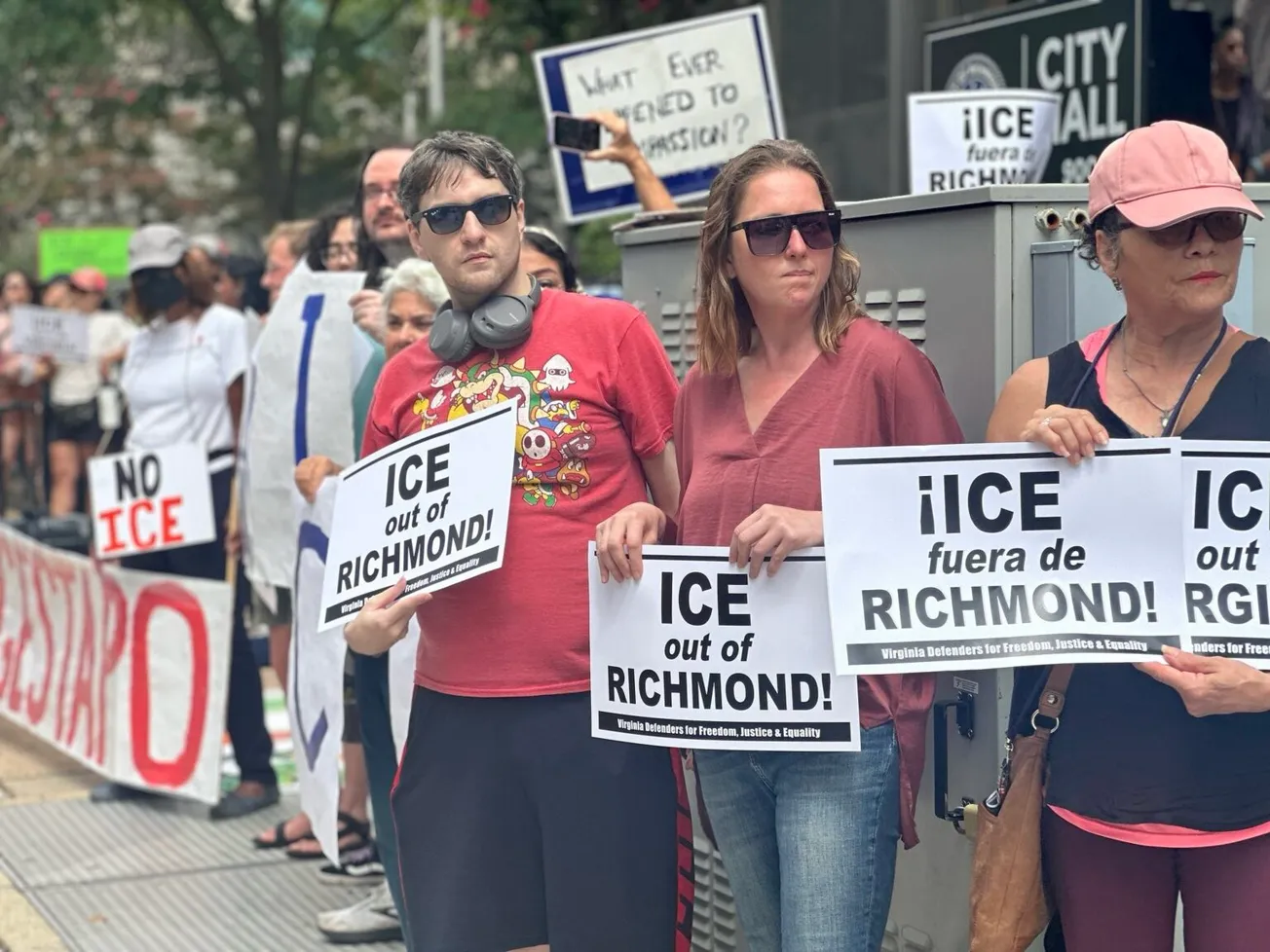Spanberger vows to scrap Youngkin’s immigration order if elected governor
Democratic nominee says local police shouldn’t act as ICE agents; Earle-Sears defends tougher enforcement but offers few policy details

Democratic nominee says local police shouldn’t act as ICE agents; Earle-Sears defends tougher enforcement but offers few policy details
